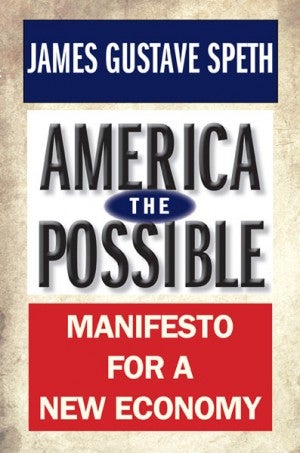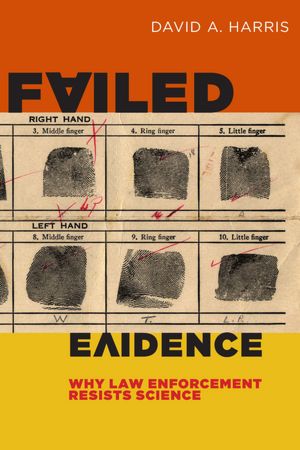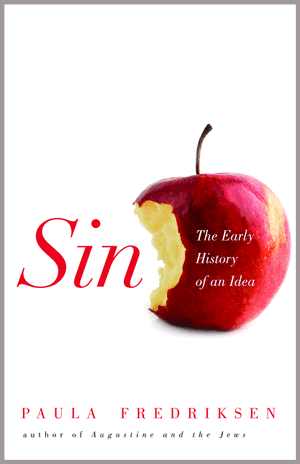-

America the Possible: Manifesto for a New Economy
by James Gustave Speth

The Nutshell:
Environmentalist leader and Vermont Law School legal scholar Speth sounds a clarion for not just a new economy but a new America. Speth argues that we must combat poverty and climate change and a host of other problems with new policies, new priorities, new politics, and a vastly transformed culture.
Literary Lovechild Of:
Al Gore’s An Inconvenient Truth: The Planetary Emergency of Global Warming and What We Can Do About It and Paul Krugman’s The Conscience of a Liberal.
You'll Find It On Your Bookshelf If:
You couldn’t get enough of the speeches at the Democratic National Convention.
Cocktail Party Fodder:
Less than one-third of American middle-class families are securely in the middle class-and nearly half of Americans are unlikely to be able to come up with $2,000 in 30 days.
For Optimal Benefit:
Use this book to help Shepard Fairey come up with a new slogan for the times, provided it won’t land him in court.
Snap Judgment:
Speth quotes E.E. Cummings, Abraham Lincoln, Robert Reich, Seamus Heaney, and Arthur M. Schlesinger, Jr.–among many others–in a wide-ranging manifesto that aims more at inspiration than specifics.
-

Failed Evidence: Why Law Enforcement Resists Science
by David A. Harris

The Nutshell:
DNA exoneration is great. But most police officers and prosecutors don’t use the best science to find and convict criminals, depending instead on unreliable evidence like fingerprinting and eyewitness testimony. University of Pittsburgh law scholar Harris explains where Law & Order got it wrong, why most investigators have little in common with their CSI counterparts, and what can be done to fix the system.
Literary Lovechild Of:
John Grisham’s The Innocent Man: Murder and Injustice in a Small Town and Vold’s Theoretical Criminology.
You'll Find It On Your Bookshelf If:
You were wrongly sentenced to detention in eighth grade for a crime you didn’t commit-and you’re determined to clear your name.
Cocktail Party Fodder:
In the first decade of the 21st century, DNA evidence led to an average of 18 exonerations a year. Over 75 percent of those exonerated had been convicted on the basis of eyewitness error.
For Optimal Benefit:
Read before your visit to a “CSI: The Experience” exhibit.
Snap Judgment:
If you’re a cop or a criminal lawyer, you’ll hang your head in embarrassment (and maybe even get fired up enough to change your ways). If you’re not, you’ll just be scared by Harris’ findings and his lucid explanations.
-

Sin: The Early History of an Idea
by Paula Fredriksen

The Nutshell:
Hebrew University historian of religion Fredriksen reads seven early seminal Christian thinkers-from Jesus to Augustine–to find out how the Christian idea of sin was formed and subsequently transformed.
Literary Lovechild Of:
Elaine Pagels’ The Origin of Satan and Alan Jacobs’ Original Sin: A Cultural History.
You'll Find It On Your Bookshelf If:
You’d find it easier to believe that Jesus died for your sins if you knew what those sins were.
Cocktail Party Fodder:
Paul insisted that gentile converts should not be circumcised-because he thought the end of ages had already begun.
For Optimal Benefit:
Read with a Gideon Bible by your side, a Scotch in your hand, and a cigarette between your lips.
Snap Judgment:
Though not nearly as sexy as the title might have you believe, Fredriksen’s deep reading helps explain the many conflicts in Christian texts and offers valuable new insights about how Jesus’ teachings were interpreted and disseminated by his earliest followers.



